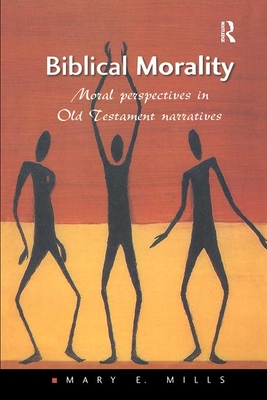This text is intended to be set in the context of more traditional approaches to ethical regulations in the Christian Bible. This volume starts on the Old Testament story and focuses on the moral vision which is part of that narrative.
Biblical Morality explores a selection of Old Testament narratives, drawing out their views on morality to offer a unique perspective on the meaning of the term ''biblical morality''. Mary Mills argues that Old Testament stories build upon a moral vision across the levels of cosmos, community and person; the author then uses these concepts as interpretative tools for reading texts, as well as literary-critical tools of characterisation, plot and time-space setting. When Old Testament stories are read by a number of different readers, diverse cultural meanings emerge; this book argues that any exploration of biblical morality must take into account plurality of meaning and not expect to settle for a single unified reading which produces a one-dimensional personal behavioural ethic. Presenting a study of biblical morality which allows Old Testament stories to stand in their own right as relevant sources, this book allows for the relevance of ''moral boundaries'' without drawing these simplistically or narrowly, and offers an accessible examination of biblical morality to all those exploring biblical texts, narrative criticism and morality and ethics more widely. Mary E. Mills is a Lecturer in Theology at Heythrop College, University of London, UK, and is the author of many books including The Puzzle of the Gospels (HarperCollins); Images of God in the Old Testament (Cassell); Historical Israel, Biblical Israel (Cassell).
Get Biblical Morality by at the best price and quality guranteed only at Werezi Africa largest book ecommerce store. The book was published by Taylor & Francis Ltd and it has pages. Enjoy Shopping Best Offers & Deals on books Online from Werezi - Receive at your doorstep - Fast Delivery - Secure mode of Payment
 Jacket, Women
Jacket, Women
 Woolend Jacket
Woolend Jacket
 Western denim
Western denim
 Mini Dresss
Mini Dresss
 Jacket, Women
Jacket, Women
 Woolend Jacket
Woolend Jacket
 Western denim
Western denim
 Mini Dresss
Mini Dresss
 Jacket, Women
Jacket, Women
 Woolend Jacket
Woolend Jacket
 Western denim
Western denim
 Mini Dresss
Mini Dresss
 Jacket, Women
Jacket, Women
 Woolend Jacket
Woolend Jacket
 Western denim
Western denim
 Mini Dresss
Mini Dresss
 Jacket, Women
Jacket, Women
 Woolend Jacket
Woolend Jacket
 Western denim
Western denim
 Mini Dresss
Mini Dresss






























































